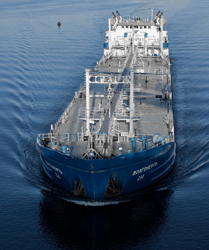Ensuring tankers are shipshape after repairs
The Erika tanker, which broke apart during a storm in 1999, spilled over 10,000 tonnes of heavy fuel oil. To avoid such a catastrophe from occurring in the future, the EU put together a legislative response. Nevertheless, nautical disasters still occur in European waters, as was demonstrated in 2002 by the sinking of the Prestige oil tanker. In numerous tanker accidents, structural deficiencies may have played a significant role. The investigation following the Prestige disaster identified the need to improve techniques for detecting defects and weaknesses during and after surveys and repairs, as well as to reduce the adverse effects of repairs. The EU-funded ‘Assessment of life-cycle effect of repairs on tankers’ (ALERT) project was launched in response to this and sought to undertake a thorough examination of current ship repair practices and to recommend improvements to the underlying processes in consultation with industry. The potential research and development areas investigated by ALERT included ship restoration practices, the condition monitoring of ships, repair-related structural assessment methods and the life-cycle management of ships. The acquired experience and knowledge was communicated to industry, academia and the general public through publications, conference presentations and via the project’s website.

